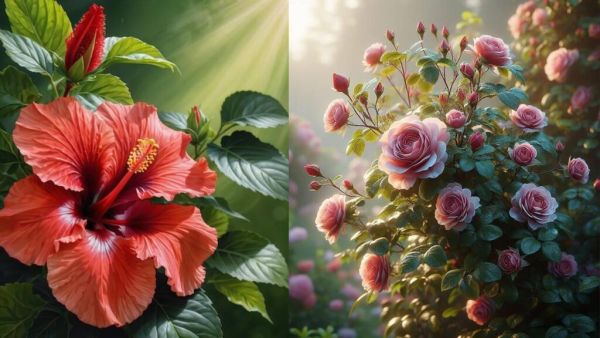
During the rainy season, the rain drops not only to the thirst of the earth, but also brings a lot of happiness for gardening enthusiasts. One such gift is that Rain Lily. This plant loves rain very much, its flowers blossom in gardens and pots as soon as the rainy season arrives. This flower in white, pink and yellow colors is not only beautiful in appearance but it is also very easy to grow and take care of it.
You can easily grow Rain Lily Plant in the balcony of the house, near the window or even in the pot in the courtyard. During the rainy days, it attracts everyone’s attention with biring flowers. Along with its beauty, its longevity and minimum need for care makes even more popular among such enthusiasts.
Soil preparation: Prepare soil by mixing two part garden soles, one part sand and one part compost for Rain Lily. This mixture ensures correct drainage of water.
Bulb to: Press the bulb in a pot for 2-3 inches deep. Keep the pointed end of the bulb upwards.
Sun and water: After applying the bulb, keep the pot in a place where there is light sunlight in the morning. Add light water but do not allow water to accumulate.
Protect from excessive water: Bulbs can rot due to excess water during rain. If the pot is open, then keep a hole in it so that water can drain.
Take care of the sun: Rain Lily loves light sunshine. Excess sunlight can scorch the leaves.
Use of compost: Giving vermi compost or liquid fertilizer once a month blooms more and longer.
Rain Lily does not require much experience to grow and raise. This plant naturally adapts itself to the weather. Neither the need for sunlight, nor repeated manure and water, this is its biggest quality.
Rain Lily finds India’s climate quite favorable, especially in states like Central India, Maharashtra, Uttar Pradesh, and Bengal, this flower comes out on its own during rainy days. If you put a bulb once, it will keep blooming without special care year after year.
Rain Lily is not only beautiful to see, but some of its medicinal properties have also been found. The special thing is that there is very little attack of any kind of insect or fungus in it. It is naturally insect resistant, which demands even less care.